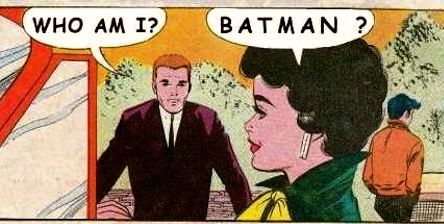During zen meditations, it’s not unusual to be given a koan. Essentially, this is a puzzling, often paradoxical statement or riddle which is posed to help provoke a spiritual awakening. Working with a koan is supposed to challenge your level of insight although sometimes it can drive you up the wall when you’re trying to seek the correct answer.
Apparently in Japanese Zen monasteries, when monks are given koans, they will devote themselves entirely to finding the answer – this could entail sleeping in zazen until they come up with a solution. During our teacher training course, we were given a koan of ‘Who Am I?’ to meditate on.
When contemplating such a question, the idea is to remain open-minded. Our Zen Master, Daizan Roshi advises us not to try too hard to formulate an answer: “Just let answers arise naturally. You will notice that the wrong answers will often just drift away from your mind.”
Your thoughts are quite revealing in themselves. Simply observe what bubbles up while you’re trying to figure out the answer. The whole process is insightful as it unearths how you view yourself and the world.
Initially during our group meditation of ‘Who I am?’, I conjured up images and thoughts of me in various roles including being a daughter, a friend, a sister, a freelance journalist and so on. Next, I moved onto the idea of me being a soul and a ball of energy rather than just a body and a mind. Was I getting closer to the right answer? A few hours later, I contemplated this further. What exactly does ‘I’ mean? Does ‘I’ really exist? Are we separate entities? Or maybe, as scientists have suggested, we are part of a collective consciousness. Nothing and yet everything?
Zen teaches us that the ego likes to create a strong sense of self and only when we start to drop the ‘I’ and dissolve the ego, do we truly realize how insignificant we are in the context of the universe and yet at the same time, we can also appreciate the infinite power within us. All those ‘empty’ feelings that many of us have (that can’t be filled by fame, fortune or romance) start to disappear. Instead they are replaced with blissful, loving and compassionate emotions that seem to stay with you.
During zen meditations, you gradually become more alert to sounds around you, be it the rain hitting against the window or the birds chirping. You slowly start to feel more connected to your surroundings, to nature and to other human beings. Non-dualism, the idea of being connected to everything is an important concept in zen.
According to Daizan Roshi, when you begin to find answers to koans, you start to experience a shift of energy in your body and a growing awareness, a sense of ‘knowingness’. If you’re lucky, one of these so-called ‘epiphany’ moments might arise during a meditation. Suddenly a glimpse of what this is all about occurs and the whole universe begins to sparkle and come alive. It’s usual for feelings of universal love and compassion to develop as a result.
“Instead of having an attitude of ‘me’ against the world,” explains our Zen Master, “Koans encourage a feeling of interconnectedness and absolute freedom. Working with a koan really helps to raise your level of consciousness, leading you towards enlightenment. The journey itself is just as valuable as the end result.”




